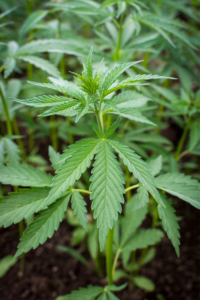Throughout history, the versatile hemp plant has played a significant role in various industries, ranging from textile manufacturing to paper production. In recent times, there has been a renewed interest in hemp as a valuable source of nourishment and medicinal benefits. However, differentiating between hemp and cannabis can still be perplexing. Although both belong to the Cannabis sativa species, hemp is harvested earlier than marijuana, resulting in significantly low levels of THC, the primary psychoactive compound found in cannabis. This crucial distinction determines whether the plant can be utilized for industrial or commercial purposes. While the legal sale of hemp products is permitted in the United States, marijuana products remain federally illegal.
Hemp’s cultivation dates back over 5000 years in China, and it later found its way to Europe through Spanish explorers in the 16th century. Its incredible versatility made it popular, as it was used in the production of rope, sails, and clothing. Early American settlers also extensively grew hemp, with certain states even mandating its cultivation by law.
Unfortunately, hemp faced a decline in the early 20th century due to its association with marijuana. However, it is important to note that hemp and marijuana are not the same, as hemp lacks the psychoactive effects of marijuana. After World War II, both hemp and marijuana were banned in many countries. Nevertheless, in recent years, there has been a remarkable resurgence of interest in hemp, leading to its legalization in various nations.
Hemp’s utility spans across a wide range of applications. It serves as a valuable resource for food, fiber, construction materials, fuel, and clothing. Moreover, hemp is currently undergoing intensive research for its potential medical benefits. CBD oil derived from hemp shows promise in alleviating pain and other health concerns. Notably, CBD oil is non-psychoactive, ensuring it does not induce a “high” or have the side effects associated with conventional pain medications. Ongoing studies are exploring the potential of CBD oil in treating conditions such as Alzheimer’s disease, cancer, and heart disease. While further research is needed, the initial findings are encouraging. CBD oil offers a natural alternative to conventional medicine, providing a holistic approach to addressing common health concerns and gaining popularity in the process.
Hemp presents a multitude of potential advantages. It is an environmentally friendly resource capable of fulfilling various needs while also demonstrating potential in the realm of medical applications. As the understanding of hemp and its benefits continues to grow, its role in various industries and as a natural remedy is likely to expand further.
*The statements made regarding these products have not been evaluated by the Food and Drug Administration. The efficacy of these products has not been confirmed by FDA-approved research. These products are not intended to diagnose, treat, cure or prevent any disease. All information presented here is not meant as a substitute for or alternative to information from healthcare practitioners. Please consult your healthcare professional about potential interactions or other possible complications before using any product. The Federal Food, Drug, and Cosmetic Act requires this notice.



